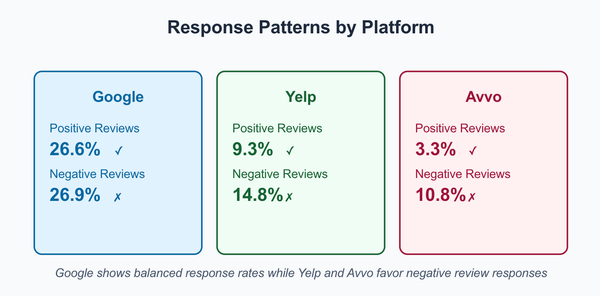Understanding Your Rights as an Employee - A Comprehensive Guide

Whether you're entering the job market for the first time or are a seasoned professional, understanding the laws that protect and guide you is essential. This blog is your go-to resource for everything employment-law-related, packed with practical tips and key insights to keep you informed.
We’ll break down what employee rights and responsibilities mean, how employment laws impact you, and what steps you can take if you face challenges at work. From tackling workplace issues to understanding discrimination laws and your entitlements, this guide empowers you with the knowledge to protect yourself and navigate your career confidently.
Ready to take charge of your workplace experience? Let’s discuss the fundamentals of employee rights and responsibilities!
Fundamental Parts of Employment Legislation
Employment law focuses on protecting the rights of workers and employers alike. It covers many fields, including hiring, firing, wages, workplace safety, family leave, and discrimination in a workspace. There are three main fundamental parts to employment law:
- Common law is based on court decisions that decide whether an employer’s actions are fair or not.
- Statutory laws are rules made by the government, like laws about minimum wages or working hours.
- Collective bargaining agreements are deals between employers and unions about pay, working conditions, and how problems are solved.
These laws work together to ensure fair workplaces and protect people from unfair labor practices. Check out the page to learn the employee lawyer density in each state of the USA and choose a top-notch lawyer if you are in any difficult situation in your workplace!
An Overview of Employee Rights in the Workplace

Every employee is entitled to a safe, fair, and respectful workplace, a fundamental right. Understanding these rights empowers employees to advocate for themselves and ensures a balanced, ethical work environment. Here are the employee laws that protect worker’s rights in a workspace:
Right 1 – Freedom from Harassment and Discrimination
Under the United Nations Entity of Workstation Equality, this law protects workers from unfair treatment and employee harassment. Employers cannot treat workers unfairly because of their:
- Age
- Gender
- Sexual orientation
- Race, ethnicity, or background
- Religion
This means employers cannot refuse to hire, promote, or fire someone because of these personal traits. Decisions must be based on how well a worker does their job, not on these factors. These rules help create a fair and equal workplace for everyone.
Right 2 – The Right to Privacy
Under workers' and employee rights, employees are entitled to privacy in the workplace. Employers cannot generally check personal belongings such as purses, phones, private mail, or personal areas like lockers. However, employers might have limited authority to review specific items or communications if:
- The worker has signed a document agreeing to such checks.
- The content is related to a work-provided account, such as an email system.
In rare cases, additional situations may allow for inspection. If you suspect a violation of your privacy rights, hiring an employment/labor lawyer can help you evaluate the situation.
Right 3 – The Right to Safety in the Workplace
The right to safety gives employees peace of mind to work in a secure and risk-free setting. This means employers must:
- Maintain a hazard-free workplace.
- Address and resolve any risks that could threaten workers' safety or health.
- Equip workers with appropriate training and protective gear to ensure safety during tasks.
- Safely handle and store harmful substances.
If an employer neglects these duties and an employee gets hurt during working hours, the worker may be eligible for compensation, covering medical expenses, lost income, and other damages from the company side.
Right 4 – The Right to Fair Wages
Employees have a fundamental right to receive proper work payment, including at least the federally mandated minimum wage according to specific regions. Additionally, overtime work must be compensated at a higher rate, often called “time-and-a-half,” based on the employee's role and agreement with the employer. Employers have a duty to provide fair pay. Upon failing, it may lead to significant legal consequences.
If issues arise over pay, contacting an attorney specializing in workplace law can help address the problem effectively and protect worker rights. Such disputes may include concerns over unfair labor practices or violations of workers’ rights to fair treatment.
Right 5 – “Whistleblower” Rights
As per the Whistleblower Protection Law, employees have the right to report any misconduct, unlawful actions, or unfair treatment by their employers to the proper authorities. Under this law, employees can do so without fear of losing their jobs, facing a demotion, or experiencing other forms of retaliation. Workers are protected under this provision, and if an employer retaliates, employees can take legal action to seek appropriate compensation. This aligns with upholding employee rights and responsibilities and maintaining worker rights in the workplace.
Discrimination, Occupational Safety & Health Act
Though the specifics of when certain worker protections apply can sometimes be unclear, discrimination laws and the Occupational Safety and Health Act are vital in securing workers' rights. These laws ensure that employees are treated fairly and kept safe while on the job. When discussing workers ' rights, let's explore two important topics: workplace discrimination and the OSHA.
Workplace Discrimination
Discrimination at work can take various forms, such as biases based on race, gender, age, religion, disability, or genetic information. Employers are prohibited from treating employees unfairly due to these or other protected characteristics. Discrimination can happen during hiring, promotions, terminations, job assignments, training, and pay. Workers who experience unfair treatment can take legal action through lawsuits or file complaints with the Equal Employment Opportunity Commission (EEOC).
Occupational Safety and Health Act
Established in 1970, the OSH Act ensures all employees have access to a safe and healthy work environment. Employers must maintain a workplace free from serious hazards that could harm or kill workers. The law mandates that employers follow strict safety rules, and failure to comply can result in hefty penalties. Workers also have the right to report unsafe conditions to OSHA (Occupational Safety and Health Administration).

Specific Laws Protecting Employee Rights in the Workplace
These laws ensure that workers have clear employee rights and responsibilities, creating a fair and just environment for everyone in the workforce. If you think your employer is doing unjust to you, a professional employment attorney can help save your rights. Let's explore the specific laws protecting employee rights;
- Americans with Disabilities Act (ADA) – This law makes it illegal for employers to treat employees unfairly because of physical or mental disabilities. If someone can do the main tasks of a job, they cannot be discriminated against just because of their disability.
- Age Discrimination in Employment Act (ADEA) - This law protects workers aged 40 or older from discrimination at work and applies to businesses with 20 or more employees. Interestingly, the law doesn't stop employers from favoring older workers over younger ones.
- Fair Labor Standards Act (FLSA) – This law covers many employee rights, such as the length of the workday, required breaks, fair pay, and overtime. It ensures workers are treated fairly regarding their wages and working hours.
- Title VII of the Civil Rights Act - This law prohibits discrimination in the workplace based on race, color, religion, sex, or national origin. It applies to businesses with 15 or more employees.
Let’s Recap
Are you aware of your rights as an employee? It's important to have a solid understanding of employment laws to ensure you're treated fairly and to protect yourself at work. Take the time to gather information, ask the right questions, and rely on your instincts when choosing a lawyer. The right employee benefits lawyer can make a big difference in the outcome of your case. If you're looking for an experienced employment lawyer, sign up for Lawyersrating. FYI, and find the best skilled legal assistance.
Frequently Asked Questions
1) Is it legal to work 12 hours in the US?
There are no laws that restrict working over 12 hours a day in a week. However, according to the Fair Labor Standards Act (FLSA), any work above 40 hours in a week is considered overtime and must be overpaid.
2) How many breaks in a 12-hour shift in the USA?
The number of breaks employees need during any shift depends upon their field of work and the State Law establishing the minimum length of meal period required for adult employees. On a general note, employees on an 8-hour shift are allotted two short breaks of 10-15 minutes and a 30-minute meal break. For 12-hour shifts, employees are allowed to take 3 short breaks of 10-15 minutes and longer meal breaks of about 45-60 minutes.
3) Are employees protected against workplace discrimination?
Yes, federal laws such as Title VII of the Civil Rights Act of 1964 protect employees from discrimination based on race, gender, religion, national origin, age, or disability.
4) What can employees do if their rights are violated?
If your employee rights are violated, you can hire a professional employment/labor lawyer and file a complaint with the HR department, state labor board, or federal agencies like the Equal Employment Opportunity Commission (EEOC) or OSHA.
5) Are employees entitled to family and medical leave?
Yes, under the Family and Medical Leave Act (FMLA), eligible employees can take up to 12 weeks of unpaid leave a year for specific family or medical reasons.





